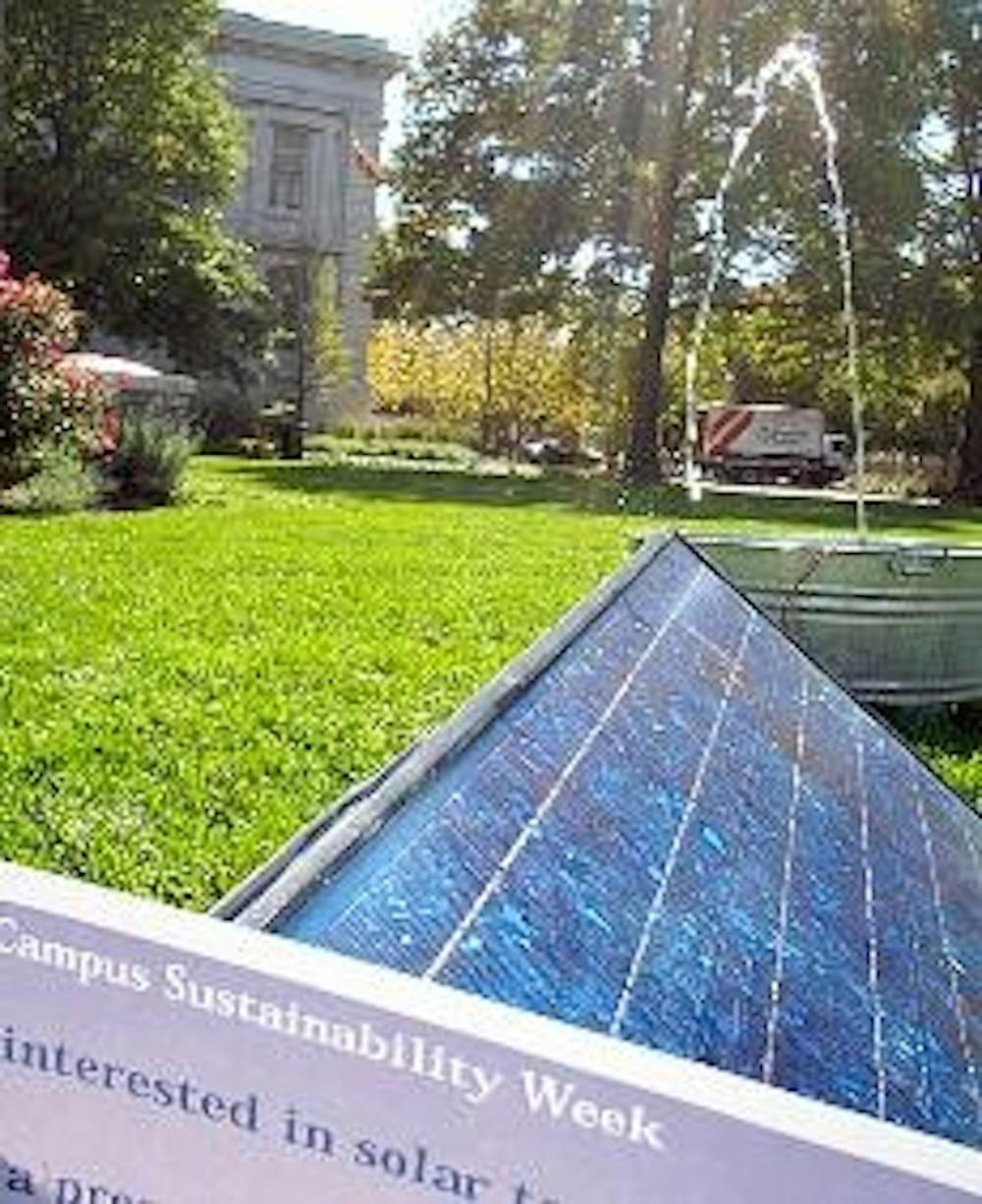As more and more of the planet's valuable resources are depleted, AU and college campuses around the country are taking active roles in raising awareness about the significance of sustainability.
The Campus Climate Challenge, a movement to reduce pollution on high school and college campuses in both the U.S. and Canada, is rapidly growing as more students are becoming concerned about a clean and sustainable energy future. Last year, AU was one of the 349 campuses across the country that has joined the Challenge. Eco-Sense, AU's environmental club, is leading the Challenge at AU.
The Worldwatch Institute, an organization working toward an environmentally and socially sustainable society, defines sustainability as "the ability to meet our needs without compromising the ability of future generations to meet theirs" on its Web site.
Meghan Hynes, a sophomore in the College of Arts and Sciences, represented AU at the 2006 Northeastern Climate Conference at Yale University last semester and spoke on a panel about schools that have been successful in the Challenge.
"It's really inspiring to see that the youth have so much control over policies that our campuses are enacting," Hynes said.
The AU community has recently made advancements in promoting sustainability on campus. The events of Campus Sustainability Week, Oct. 24 through Oct. 26, presented the current and future roles of sustainable technology in society. The week's events included a Transportation Fair in Mary Graydon Center, a presentation on solar technology by Jeff Gilbert of Chesapeake Wind and Solar and bales of recycled materials and trash compactors piled on the quad.
"The solar fountain on the quad was a great way to display how solar technology actually works," Sasha Feinman, a junior in the School of Communication, said after Gilbert's presentation.
Another initiative, Campus Sustainability Day IV, sponsored by the Society for College and University Planning, was celebrated last Wednesday on many campuses throughout the country, including AU, with a national live Webcast. In its fourth year, Campus Sustainability Day encourages sustainability in higher education by designating a certain day of the year for campuses to promote and exchange ideas on the issue, according to the SCUP Web site.
Riley Neugebauer, AU's environmental coordinator, said people must look at the world through a "lens that includes equity, economy and ecology."
"By having events that raise awareness, it helps make this more understandable and clear and shows how higher education in particular has a role to play in educating people about sustainability," Neugebauer said.
In its efforts to become more sustainable, the AU campus is integrating more "eco-friendly" features in its new buildings. The new School of International Service building, set to begin construction in the summer of 2007, will utilize renewable and recycled materials. According to Neugebauer, the building will be equipped for solar paneling and water-efficient fixtures.
"The environmental impact of buildings is often ignored. Hopefully SIS's new 'eco-friendly' building will set a positive example for others to follow," said Erik Subrizi, a junior in the School of Communication.
Initiatives to increase awareness about sustainability, organize educational events and construct more environmentally friendly and sustainable buildings are growing on college campuses. According to The Chronicle of Higher Education, the University of Florida is on a mission to one day convert its campus waste into a reliable source of energy. By taking vegetable oil from restaurants on and around the UF campus, Doug Renk, a university research assistant, hopes to turn it into biodiesel.
Other institutions such as Berea College, Arizona State University and Johns Hopkins University are also implementing policies concerning campus sustainability. These universities are designing green buildings, converting to renewable energy systems and planting more environmentally friendly landscapes.





